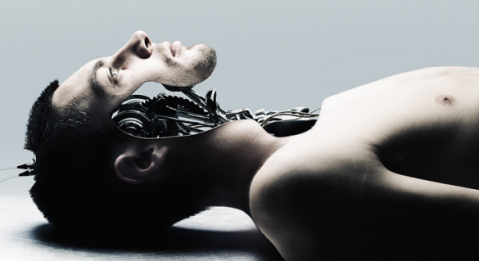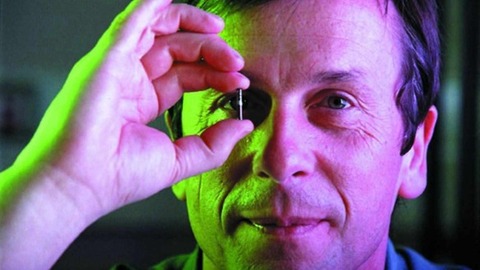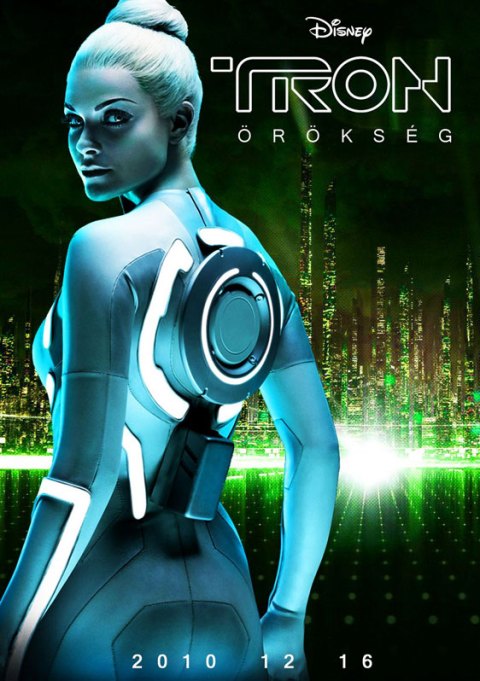The Ghost in the Machine
February 24, 2011 § 9 Comments
“….Consume my heart away; sick with desire
And fastened to a dying animal
It knows not what it is; and gather me
Into the artifice of eternity.
Once out of nature I shall never take
My bodily form from any natural thing,
But such a form as Grecian goldsmiths make
Of hammered gold…”
— W.B. Yeats, from Sailing to Byzantium
Coined by British philosopher Gilbert Ryle to describe Rene Descartes‘ concept of mind-body dualism, the phrase “The ghost in the machine” was originally intended as a metaphor. These days it takes on a more literal meaning.
Author/inventor Raymond Kurzweil, for instance, postulates that by 2045 we will have incorporated our technology into our very selves. He predicts this will be out of necessity, to keep up with the super-intelligent machines we ourselves have created.
Not just that, but he suspects that within the next thirty years we will witness the uploading of the human consciousness or brain to computer systems, an ambition upon which many are working to make reality as I write.
Coming from just anyone, these predictions would seem outlandish. But Kurzweil is a respected and accomplished inventor, holding 19 honorary doctorates, honored by American presidents for his contributions to the scientific community. Bill Gates has called him “the best person I know at predicting the future of artificial intelligence.”
In a recent Time magazine article on Kurzweil and his futurist ideas, author Lev Grossman encourages the reader to leave their gut reactions at the door:
“There’s an intellectual gag reflex that kicks in anytime you try to swallow an idea that involves super-intelligent immortal cyborgs, but suppress it if you can, because while the Singularity appears to be, on the face of it, preposterous, it’s an idea that rewards sober, careful evaluation.”
According to Kurzweil, a technological singularity –– known more popularly as “The Singularity” — will occur in the foreseeable future, wherein rapidly accelerating knowledge about nanotechnology, artificial intelligence, computer science, biotechnology and genetics will combine to create the perfect storm wherein a paradigm shift will occur so profound that it will change “the world as we know it” in record time. After all, technology is developing exponentially, each breakthrough generating a new constellation of breakthroughs.
There are already transhumanist clubs and conventions that attract thousands.
Transhumanism is a cultural/intellectual movement advocating human augmentation through technology. But we’re not just talking prosthetic arms here, we’re talking goals of human immortality through machines — scientists working quite seriously towards transferring human consciousness from its corporeal form into the body of a robot.
If this sounds like science fiction, keep in mind that science fiction has predicted nearly every technological advancement we now perceive as commonplace, from space travel to submarines.
In 1998, a British scientist and professor of cybernetics, Kevin Warwick, became the first human cyborg. Warwick had a small radio transmitter chip implanted under his skin, which could affect lights turning on and off, doors opening and closing, etc. (Hasn’t he ever heard of “clap on, clap off?”)
Encouraged by this success, in 2002 Warwick had a neural interface implanted in his nervous system. That too was successful. Later, a simpler array was implanted into Warwick’s wife. The aim was to create a form of telepathy or empathy using the Internet to communicate the signal from afar. Though significant telepathy was not achieved, some signals were exchanged, resulting in the first purely electronic communication between the nervous systems of two humans.
The transhumanist trend has been showing up more and more in pop culture as well…
It’s not a question of if our humanity will become augmented (and simultaneously, paradoxically, perhaps diminished) by technology, but when and how.
The potential for nightmare scenarios — the Darwinian error of creating entities more powerful than oneself with minds of their own — remains a realistic concern, but not a momentum-stopper, apparently. And perhaps reasonably so: if we let fear and paranoia rule our imaginations, after all, we repress our potential. On the other hand, brazen utopianism with hubristic disregard for basic intuitive reservation has gotten more than a few people in trouble. I suppose the phrase “proceed with caution” would be particularly meaningful here.
“We will transcend all of the limitations of our biology,” says Raymond Kurzweil. “That is what it means to be human — to extend who we are.”
A good argument. But many would argue that becoming machinelike is the exact opposite of what it means to be human. Without the prospect of death to motivate living each day to the fullest, without imperfection to give poignancy, what will we become? And what if we are the spiritual equivalent of caterpillars designing ways to remain caterpillars indefinitely, unwittingly thwarting our destiny as butterflies?









All of this technology certainly brings up ethical and moral questions, but I wonder, where do you yourself draw the line between beneficial human augmentation and “trans-human” modification? Augmentations like braces for teeth, or surgically implanted eye lenses are very helpful to people – however, breast implants or permanent make-up is generally seen as excessive or unnecessary – let alone a body modification which would allow for telepathy as you mentioned in the article. Where do you draw the lines between “surgically helpful” to “cosmetically desired” to “post-human?” Do you think the lines might be different for different people depending on their circumstances?
I think the lines are definitely different for different people, depending on the circumstance. As far as cosmetic surgery, I think our idiosyncrasies make life interesting, so I would never do it. But I can see the appeal. So too with the whole life-extension-through-machines scenario; though myself, I wouldn’t scan my consciousness into an artificial host body, by any means. I’d rather take my chances with the organic process and see what’s behind door number two. Plus I have a horror of trapped-in-spiritual-limbo scenarios, but that’s just me. I have nothing against transhumanists. I think the general idea of pressing the boundaries of the known is admirable.
It’s uncanny to watch androids simulate humanness. Is the odd sensation we get from watching humanlike robots indicative of some deep violation of the natural order of things? Or is it merely the affect of harmless cognitive dissonance (the thing is not alive but looks and acts alive; a paradox.) Who can say? I certainly would not pretend to know.
Ultimately, for me it comes down to a question of individual liberty. Do people have the right to augment themselves however they see fit, if it’s not harming anyone? Yes, I believe they do. A few basic parameters would have to be established, such as prohibition of modifications which could cause harm to others, such as replacing limbs with weapons etc. (imagine being able to fire from a thought!) And yet the same question of gun control which exists today comes up in this destructive modification scenario. If a person can buy a gun, then why can’t they also, if they wish, replace their limb with a machine gun? They seem different to me, but how would one define the difference legally?
I am a fan of visionaries and transhumanists are definitely visionaries. Does it give me the willies to imagine a future of cyborgs and robots intermingling with us? Honestly, yes.Something just feels gut-wrong about creating super-intelligent beings that are stronger and smarter than we are. It just smacks of arrogance and Darwinian error to me. But, then again, if the whole thing were handled wisely enough and we ended up with peaceful, ethical androids like Asimov’s Daneel or Star Trek’s Data, I could get into that.
And it makes sense that eventually we would be, in some sense, “post-human.” Everything seems to get to the “post-stage” eventually.
I am, in the end, of two minds: I feel trepidation, but also the awareness that my resistance could be the natural reluctance one can feel towards any kind of paradigm-shifting change. I remain open-minded. 🙂 That being said, and being a reader of sci-fi literature, I do feel a little nervous about the rate our technology is expanding…will our ethical and emotional intelligence evolve as quickly?
I have more questions than answers.
A really good summation of the issues. We seem at a point where the agrarian age was challenged by the first industrial machines, so there is a lot of resistance to hold onto the status-quo since the changes look to be jarring at best. One issue that will arise is the tremendous unemployment that will be created. It looks like many manual jobs like construction, public transportation, even the medical profession, teaching etc. will be profoundly affected.
Thank you, Dave! 🙂 Agreed — unemployment is one of the less theoretical, most hard-hitting aspects of this possible scenario. That is an excellent point! TC
Hey, I would like to know who needs to be credited for the last image of your story since it would fit perfectly in an image for our website.
Thanks for the info 🙂
P.S.: Take a look at the Eyeborg article.
Hey there!
Sorry, but I wrote this article before I knew about the blogger courtesy of crediting images — something I soon corrected, but the early posts were the casualties. (For most of my posts, if you hover your mouse above the images, the credits, if I know them, will appear. Rather subtle, I know. But that’s the wordpress way.)
Still, the good news is that the following two links feature the same image, so check them out:
http://www.gettyimages.com/detail/photo/monarch-butterfly-and-robotic-hand-royalty-free-image/82909982
http://www.masterfile.com/stock-photography/image/6106-05495277/Monarch-butterfly-and-robotic-hand
Also, I just did a cursory search on “butterfly in robot hand” and that phrase actually yields quite a windfall of similar images! So you should try that as well.
Good luck!
Tai
I did a research on my own and tracked it to a devianART user who removed it (it dates back to 2009). Seems that it is royalty free now 🙂
Thanks for your effort!
Good to know we’re off the hook! 😉
Cheers!
[…] Ghost in the machine. Virtually. (source) […]